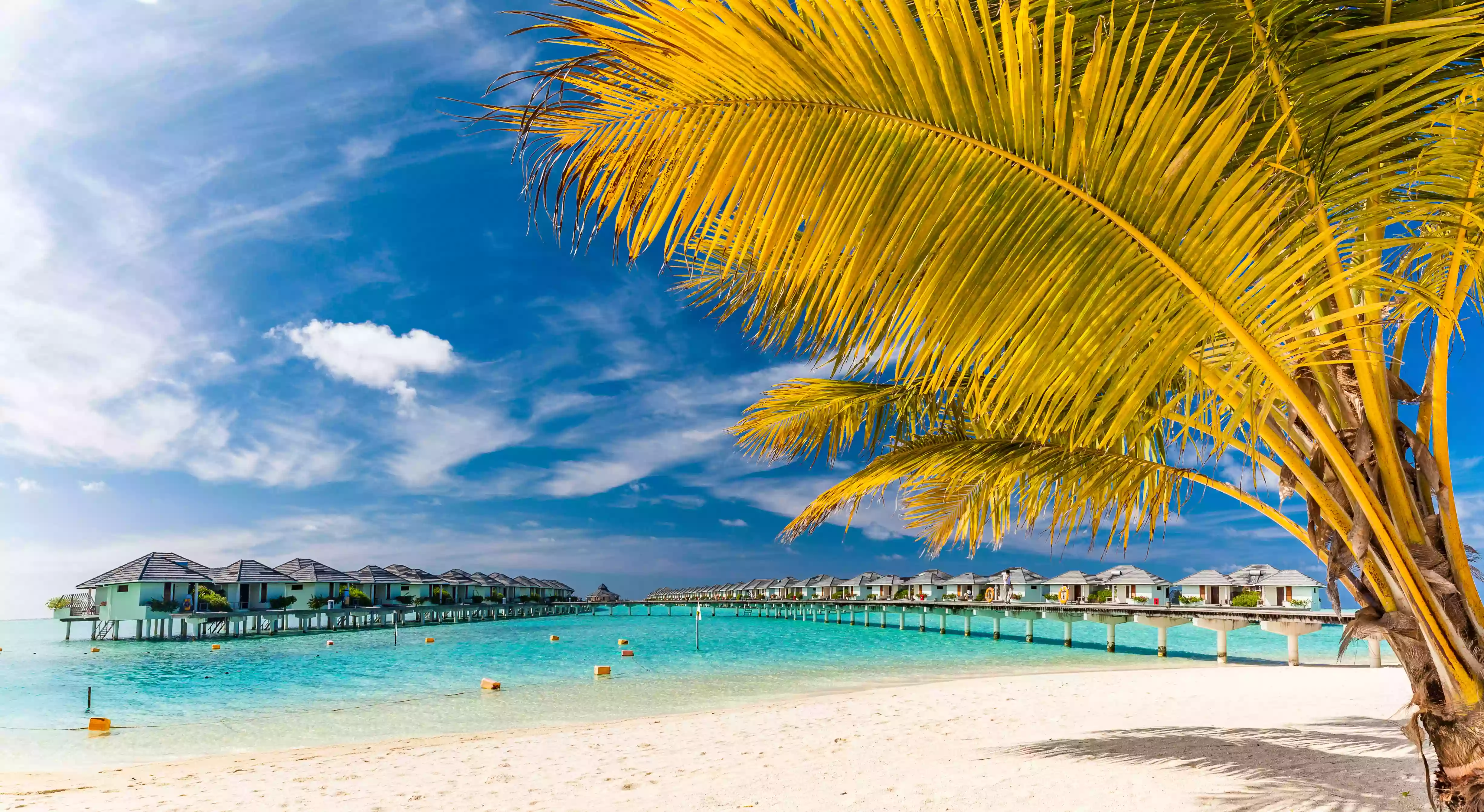Essential Guide to Preparing for Your Maldives Adventure
Morgan Wiggins
Apr20,2023 • 4 min read

T
he Maldives, an idyllic island nation in the Indian Ocean, is known for its stunning white-sand beaches, crystal-clear turquoise waters, and vibrant marine life. However, to truly appreciate the beauty of the Maldives, it is essential to understand its unique culture and customs. The Maldivian people, predominantly Sunni Muslims, have a rich cultural heritage that blends influences from South Asia, Africa, and Arabia. Be respectful of local customs, such as dressing modestly when visiting inhabited islands or mosques, and avoid public displays of affection.
Best Time to Visit the Maldives
The Maldives enjoys a tropical climate year-round, with temperatures hovering between 79°F (26°C) and 86°F (30°C). However, the best time to visit the Maldives is during the dry season, which runs from November to April. This period typically sees less rainfall, calmer seas, and better visibility for underwater activities. While the wet season (May to October) can bring heavy rainfall and occasional storms, it also offers lower prices and fewer tourists, making it an attractive option for those on a budget or seeking solitude.
Maldivian Cuisine and Local Dishes
Maldivian cuisine is a delightful fusion of Indian, Sri Lankan, and Arabic flavors. Fresh seafood, coconut, and an array of spices form the basis of many local dishes. Be sure to try some authentic Maldivian fare, such as mas huni (a mixture of shredded tuna, coconut, and vegetables served with roshi flatbread), garuda (a traditional fish soup), and Radhika (deep-fried snacks made from fish, coconut, and rice flour). Enjoy the vibrant flavors of Maldivian cuisine and don't miss the opportunity to savor freshly caught seafood.
Accommodation Options: Resorts, Guesthouses, and Liveaboards
The Maldives offers a wide range of accommodation options to suit all preferences and budgets. Luxury resorts, typically located on private islands, provide world-class amenities, overwater villas, and stunning vistas. Guesthouses on local islands offer a more affordable and immersive experience, allowing visitors to engage with the local community and culture. For those who wish to explore multiple atolls, liveaboards—boats with onboard accommodation—provide an adventurous and unique lodging option, often catering to divers and snorkelers.
Local Currency and Payment Methods
The Maldivian Rufiyaa (MVR) is the official currency of the Maldives. However, most resorts and tourist establishments accept major international currencies such as US dollars, euros, and pounds sterling. Credit and debit cards are widely accepted at resorts, hotels, and larger businesses, but it is advisable to carry some cash for smaller transactions, especially on local islands. ATMs are available in the capital, Malé, and some larger islands but may be scarce on smaller, more remote islands. Always inform your bank of your travel plans to avoid any issues with card transactions while abroad.
Health and Safety Tips for Travelers
While the Maldives is generally a safe destination, it is important to take some precautions to ensure a healthy and enjoyable trip. Keep yourself well-hydrated and apply sunscreen regularly, as the sun can be quite intense in the Maldives. Be mindful of currents and marine life while swimming or snorkeling and always follow the advice of local guides or resort staff. Carry a basic first-aid kit, including motion sickness medication for boat trips. Check with your healthcare provider for any necessary vaccinations before departure, and consider bringing mosquito repellent to protect against insect-borne illnesses.
Local Festivals and Events to Experience
The Maldives boasts a vibrant cultural calendar, and experiencing a local festival can be a highlight of your trip. One of the most significant events is Ramadan, the Islamic month of fasting, which culminates in the celebration of Eid al-Fitr. Other noteworthy festivals include Independence Day (July 26), celebrating the nation's independence from British rule, and the Maldives Fisherman's Day, which pays tribute to the country's fishing heritage. Keep in mind that during religious events, local island facilities may have limited hours, and alcohol may not be readily available.
Climate and Weather Patterns in the Maldives
The Maldives experiences a tropical climate characterized by warm temperatures and high humidity levels throughout the year. There are two distinct seasons: the dry season (November to April) and the wet season (May to October). The dry season is marked by relatively little rainfall, while the wet season sees more frequent showers and occasional storms. Although the wet season is cloudier, it also brings cooler temperatures and vibrant, lush vegetation.
Packing Essentials and Clothing Suggestions
When packing for your Maldives adventure, consider the tropical climate and the activities you plan to enjoy. Lightweight, breathable clothing is recommended, along with sun protection such as sunglasses, a hat, and sunscreen. Swimsuits, rash guards, and comfortable footwear, such as flip-flops or water shoes, are essential for beach and water activities. Remember to pack modest clothing for visiting local islands and mosques. A lightweight rain jacket or umbrella may come in handy during the wet season. Finally, bring a reusable water bottle and a dry bag for protecting your belongings during boat trips.
Travel Insurance and Emergency Contact Information
Before embarking on your trip to the Maldives, it is essential to secure comprehensive travel insurance that covers potential medical expenses, trip cancellations, lost luggage, and any adventurous activities you plan to participate in. Keep a copy of your insurance policy and emergency contact numbers handy both in digital and physical forms. In case of emergencies, dial 102 for the Maldives Police Service or 191 for the Maldives National Defense Force's emergency services. Additionally, take note of the contact information for your country's embassy or consulate in the Maldives for assistance during your stay.

